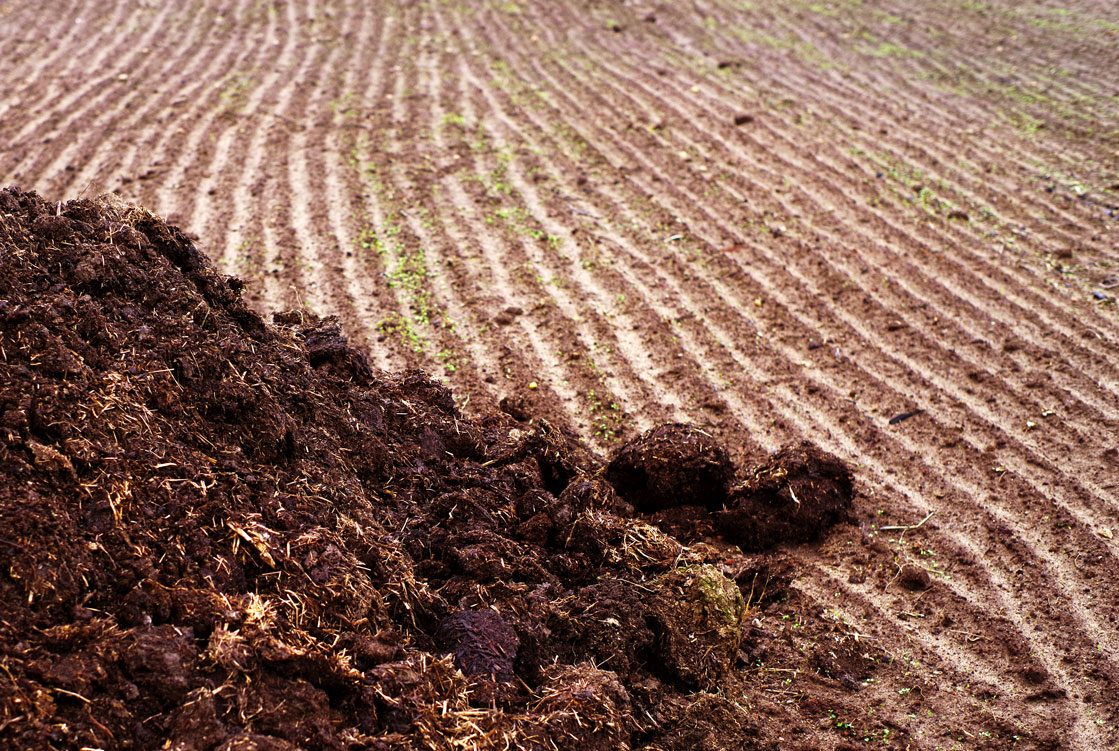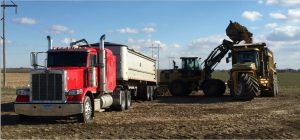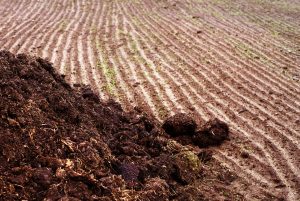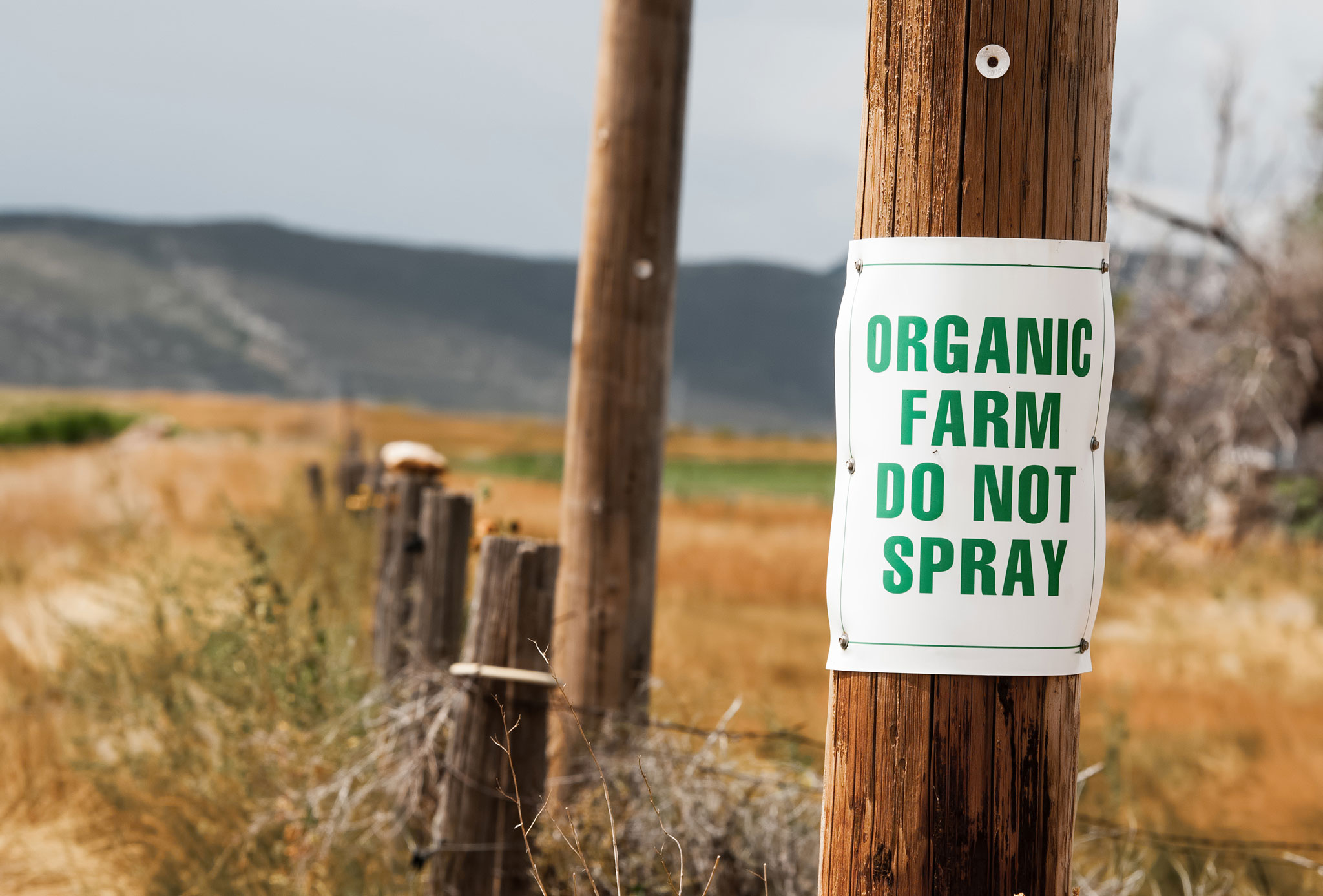- Published On: June 1, 2021
- Author: AgriSecure
If you’re paying attention to the conventional markets, you know crop prices are rising. And when that happens, the price of organic fertilizer — especially organic manure — goes up with it. How will this impact your organic fertility program?
It’s a challenge that Scott Niemela understands first-hand. He’s an organic farmer and also the co-owner of Crop Fertility Services (CFS), an organic fertilizer company based in Cokato, Minnesota.
We talked to Scott about how conventional markets impact organic fertilizer and how organic farmers can build a strong organic fertility program.
-
Photo courtesy of Crop Fertility Services
How conventional ag impacts organic fertility prices
Scott says the reason conventional crop markets impact organic fertilizer prices is due to demand.
With crop prices going up, some conventional farmers buy manure because they can justify the cost. They like to include it in their crop production for its nutrients and soil-building benefits.
Higher conventional crop prices may also prompt some farmers to push for higher yields, which often requires more fertilizer. Higher demand for fertilizer leads to higher fertilizer prices.
Buy early to buffer high demand
With demand increasing, the greatest risk organic farmers face is not having enough fertilizer to meet the needs of their organic fertility program. That’s why Scott recommends stocking up in advance.
“Don’t be afraid to stockpile your field in April for next year’s crop,” he says. “It’s going to be far cheaper to buy that manure and have it sitting there, even if prices fall, and know that you have fertility.”
He adds that you only need to experience a shortage once to understand how inexpensive it is to stockpile manure. “The heartbeat to all of this every single year is that fertility. And if you don’t have that, it makes it pretty hard to survive.”
Scott advises making your commitment as soon as you can. He’s already had some customers buy for their next year’s organic fertility program to ensure they won’t come up short.
Pick the most cost effective sources for your organic fertility program
So you’re ready to stock up on organic fertilizer. But how do you decide what source to use and where to purchase it?
CFS specializes in chicken pellets and raw chicken and turkey litter. But Scott says often the best source is the one closest to you.
“Sometimes it’s not necessarily about what’s the best fertilizer as much as what is locally available to you for the most benefit of cost,” he says. A local, raw cattle manure may make more economic sense than transporting in hog or poultry manure.
Scott has some customers who swear by pellets. But he knows others may be seeing good success with raw manure or even cover crops as their primary fertility.
Take an analysis to understand your nutrients
If you do go with raw manure, you’ll need to get a nutrient analysis.
One of the challenges with manure is its variability in nutrients. Unlike synthetic fertilizer, manure doesn’t guarantee a certain amount of nutrients.
The exception to this is pelleted manure, which can make them a good option for organic fertility programs. They’re processed, so they tend to be more stable and are required to guarantee a certain analysis. Pellets also tend to have the highest density of nutrients. Depending on your region, they may be the most economic form to transport for longer distances.
Even if you get your manure from the same source, the fertility can vary based on the animal’s diet and the weather. It also depends on whether the manure is wet or dry. Wet manure is diluted manure, Scott says. You may end up paying to transport a lot of water vs. valuable nutrients.
How to sample for analysis
Scott recommends taking a small scoop from the manure pile in at least 6-12 different places, depending on the pile’s size. Get the samples from at least 1 foot into the pile from the surface. You don’t want to sample the surface because it’s not an accurate representation of the pile since it’s most affected by the weather.
You’ll then mix the scoops in a bucket and send it for analyses. Divide it into a couple samples if you’re curious about how much the nutrients can vary.
“Depending upon where you’re picking the pile, you can take three samples and get three completely different analyses,” he says. Keep this variability in mind when considering an organic fertility program and reviewing the results from your growing season.
It’s important to keep in mind that with raw manure, an analysis doesn’t guarantee those nutrients are ready for plant uptake. Nutrients need to go through a biological process to be plant available and that is dependent on environmental conditions.
In-furrow may be the next organic fertilizer
While manure, whether in pellet form or raw, will likely be the primary source for the inputs in your organic fertility program, Scott is seeing growing interest in liquid in-furrow products. In fact, he’s personally testing a mix of molasses, humates, and biologicals on his farm this year. Scott says he and his CFS co-owner are skeptical of new trends. So they always test a product before they sell it.
“We’re usually not the most anxious to sell a product as soon as it comes out,” he says. “Either we’ll prove it or it’ll prove itself.”
Scott adds that any growers who are interested in the results of their in-furrow fertilizer trials are welcome to reach out to them at the end of the season to see how it went.
Find a good agronomist to optimize your organic fertility program
There are a lot of variables that impact organic fertilizer. From the manure source to the nutrient analysis to the availability of those nutrients. That’s why Scott’s No. 1 tip for creating a successful organic fertility program is to find a good agronomist.
“That made a huge difference on my farm,” he says. “As a farmer, you have to wear so many hats. It’s really hard to dig in and understand what really is the root of your problem and what your limitations are.”
What makes a good agronomist? Scott’s personal rule is they need to pay for themselves within 2-3 years.
How CFS supports organic farmers
CFS’ mission is to empower organic farmers, both in their fertility and weed control. In addition to selling manure, they offer Purple Cow Organics fertility products, humates, and equipment.
CFS aims to serve as a partner to their customers. And they’re always looking for ideas to make organic fertilizer more efficient and cost effective. If you have ideas you’d like to share, or would like to learn more about CFS, visit their website at www.cropfertilityservices.com.
Have livestock or access to manure? Consider organics.
If you have your own livestock or access to manure, now is a great time to consider transitioning to organics.
It’s what AgriSecure member Rusty Olson did when he saw the farm economy “slide sideways.” With access to hog manure, he knew he had a prime opportunity to capitalize on organic’s premiums and become more profitable.
AgriSecure can help
If you’re interested in organics or need help creating an organic fertility program, contact AgriSecure to schedule your free consultation.
Get in the know
Our newsletter, it’s a quick read. You’ll get industry news plus all the latest organic insights. Who doesn’t want that?



